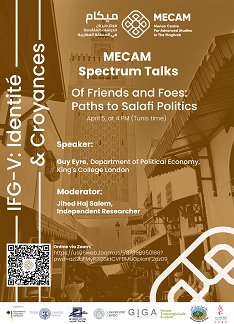
Of Friends and Foes: Paths to Salafi Politics
This paper looks at something unexpected – how ‘quietist’ Salafi actors, who claim they “don’t do politics”, actually do do politics. Salafism, a puritanical, scripturalist, literalist Sunni Islamic trend, is one of the most important Islamic ideologies of the past seventy years (Bano 2021). Salafi groups’ link with politics is arguably their central dilemma – can they adhere to God’s injunctions and acquiesce to ‘secular’ political power where the ruler doesn’t impose (strict) Islamic law? Politically ‘quietist’ expressions of Salafism were long thought to be a defining feature of Salafi trends. These Salafi groups are typically known for their focus on studying and teaching Islam, and cleansing it of ‘impurities’, and their lack of interest in formal politics, if not their traditional full-blown rejection of all formal political participation and activism. Much scholarship on contemporary Salafism typically describes the politics of Salafi actors in terms of involvement in formal institutional politics, the formation of Salafi political parties, and engaging in contentious politics – practices that ‘quietist’ Salafi groups explicitly disavow. This paper, however, attempts to advance understanding of Salafi political practices and, in doing so, broaden and nuance notions of ‘political’ Salafis within the scholarship on Islamic politics. It does so by critically reworking interventions on boundary-politics (Schmitt, 1996) and political friendship (Friedman, 1989). Drawing on Salafi literature (printed and online), and on in-depth interviews and ethnographic data from extensive fieldwork in Morocco and ongoing fieldwork in Algeria and Tunisia, this paper rethinks the nature of Salafi politics in terms of practices of drawing friend/antagonist borders at the level of key concepts.
Details:
